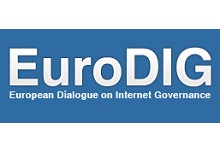Create your digital future: Transforming lives and businesses in Europe
8 Jun 2018 02:00h
Event report
This session started with introductions of the key participants and a brief overview of digitalisation in Europe, by moderator Ms Ana Kakalashvili (Analyst, Institute for Development and Freedom of Information).
Mr Michal Boni (Member of the European Parliament, Poland) took the floor by listing five crucial action points on the road to being a digital game changer for Europe:
- 5G infrastructure development, especially for Internet of Things (IoT)
- High performance computing network development
- Development of artificial intelligence (AI) with human-centric principles
- Modern, cross-border cybersecurity solutions
- Redefining national education systems to develop digital literacy and skills, adaptability, and co-operation with new technologies
Boni stressed these points as opportunities to create competitive advantages for Europe through regulations, investments, and policies. The growing gap between developing technologies and human ability to adapt were underlined as critical, and tackling this phenomenon is possible through building digital skills for citizens of all ages in Europe. Challenges related to cybersecurity, such as the needs to harmonise cybersecurity certifications; stronger leadership from the EU; and dialogue and collaboration between all EU and non-EU countries were other points voiced by Boni.
The moderator continued the session by asking how national governments could make sure to enable and promote a digital culture. Mr Nikoloz Gagnidze (Chair, Georgian Data Exchange Agency) stated that e-governance is good governance, while the government’s role in making such services available for citizens is of fundamental importance. He stated that the Georgian government puts great importance on collaborating with various actors within and beyond the country for increased cybersecurity. The insufficient budget, high level of bureaucracy, and a disconnect between agencies were some of the main challenges faced on the road to digitalisation and increased cybersecurity, for the government and citizens of Georgia. Gagnidze also mentioned that they are currently working on further securing electronic communications between government entities and businesses with soon to be mandatory digital signatures. When asked about the usage of e-government services, Gagnidze stated that while usage remained low, this was also due to the fact that most current services were information oriented.
A session participant asked what was the best tool or device for civil society to push governments regarding digital issues, to which Boni replied that another obstacle was the lack of a common understanding of digital issues. Multistakeholder platforms, such as EuroDIG, are suggested as platforms to communicate messages from meetings held at the European Parliament, especially before elections.
Mr Raul Echeberria (Vice President for Global Engagement, Internet Society) talked about the pace of digitalisation in all human activity and highlighted the vitality of quick adaptability. He talked about the challenge this posed for large companies and institutions which are less flexible by nature. Disruption in the job market happened with previous milestones, such as during industrialisation, but the key difference is the high-paced development speed of most new technologies. Echeberria highlighted that innovation is not only needed by businesses, but crucial in public policy as well. He used examples of ride-sharing services’ disruptive effects on the sector being amplified by insisting on existing, and sometimes outdated, policies and regulations. He concluded by saying ’Governments need to collaborate and benefit from experiences and expertise of society across all sectors.’
Mr Melle Tiel Groenestege (Digital Policy Advisor, VEON Communications) talked about the challenges faced by the telecom sector, usually stemming from too many regulations. He pointed to strategising and creating frameworks before imposing direct regulation. Groenestege talked about the opportunities of a ‘platform-economy’. He gave the example of farmers who cannot reach certain information although they have mobile access. The company created a platform where all agriculture-related providers can upload information and content for farmers with smart phones. This and similar projects have proved fruitful for all the stakeholders involved. Groenestegealso underlined the importance of NGOs and civil society as business core interests do not always align with the public’s needs.
Ms Katrin Ohlmer (CEO, Dotzon GmbH) took the floor and mentioned some important points for digitalisation:
- Universal access to the Internet
- Intuitive and easy to use services
- Memorable and searchable names
- Creating practices with citizens and not for them
Ohlmer gave examples from Europe of surveys, tried and tested strategies, and campaigns for increasing public engagement with online public services. The profound impact of easy to remember domain names, free Internet access in public spaces, creating services with the collaboration and feedback from citizens were noted as some of the best practices.
Related event

